Funnier: Wood…you remember?
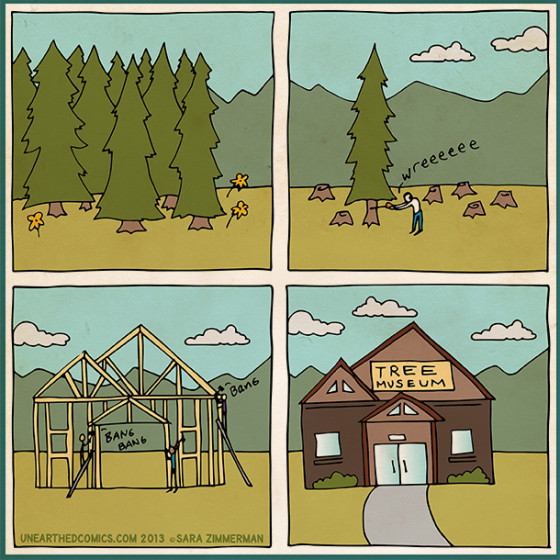
Wordplay: Ian McEwan’s thoughts on writing about love
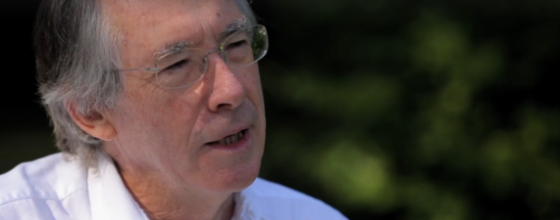
In this video from Aero Gramme Writers’ Studio, Ian McEwan discusses writing about love, in fiction:
“It’s very difficult to do happiness in novels in a sustained way.”
In this video recorded by the Louisiana Museum of Modern Art earlier this year, Ian McEwan reflects on making romantic love work in fiction, the amazing evolution of the novel as a genre, and the mature writer as a toddler of old age.
Ian McEwan has been nominated for the Man Booker Prize six times, winning the prize in 1998 for Amsterdam. His most recent novel, Sweet Tooth, was published in 2012.
Music: From a Distance, with Nanci & Julie
I know you’ve heard this song by Nanci, but have you heard it with Julie, who wrote it? Check it out….
Writings: Namasté! (where it comes from, young monk)
The other day my friend Nalalie sent this over, when someone one asked, “How come people put their hands together & bow to each other?” Good start – there’s a bit more to it than that! Here’s a little explanation, if you were wondering:

NAMASTE, Friends..! :
Why do we do Namaste?
Indians greet each other with namaste. The two palms are placed together in front of the chest and the head bows whilst saying the word namaste. This greeting is for all – people younger than us, of our own age, those older than friends, even strangers and us.
There are five forms of formal traditional greeting enjoined in the shaastras, of which namaskaram is one. This is understood as prostration but it actually refers to paying homage as we do today when we greet each other with a namaste.
Namaste could be just a casual or formal greeting, a cultural convention or an act of worship. However there is much more to it than meets the eye. In Sanskrit namah + te = namaste. It means – I bow to you – my greetings, salutations or prostration to you. Namaha can also be literally interpreted as “na ma” (not mine). It has a spiritual significance of negating or reducing one’s ego in the presence of another.
The real meeting between people is the meeting of their minds. When we greet another, we do so with namaste, which means, “may our minds meet,” indicated by the folded palms placed before the chest. The bowing down of the head is a gracious form of extending friendship in love and humility
The spiritual meaning is even deeper. The life force, the divinity, the Self or the Lord in me is the same in all. Recognizing this oneness with the meeting of the palms, we salute with head bowed the Divinity in the person we meet. That is why sometimes, we close our eyes as we do namaste to a revered person or the Lord – as if to look within. The gesture is often accompanied by words like “Ram Ram,” “Jai Shri Krishna”, “Namo Narayana”, “Jai Siya Ram”, “Om Shanti” etc – indicating the recognition of this divinity.
When we know this significance, our greeting does not remain just a superficial gesture or word but paves the way for a deeper communion with another in an atmosphere of love and respect.
Keshav Pandit
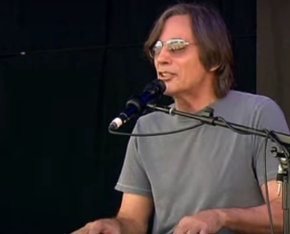
Music: Visions of hope, of the future, of the dark – “Before the Deluge” with Jackson Browne
Turn off the other stuff & give this a listen, you’ll be glad you did.
When Jackson sings this song from the mid-1970s (recorded here in 2010 at the UK’s Glastonbury Festival), it echoes the hopes & fears we struggle with today, as he sings in the third verse:
Some of them were angry
At the way the earth was abused
By the men who learned how to forge her beauty into power
And they struggled to protect her from them
Only to be confused
By the magnitude of her fury in the final hour
And when the sand was gone and the time arrived
In the naked dawn only a few survived
And in attempts to understand a thing so simple and so huge
Believed that they were meant to live after the deluge
Starpeople: How to leave the planet, with Douglas Adams
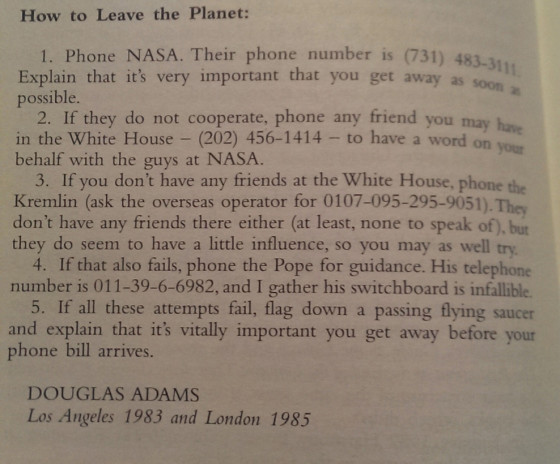
Healing & sharing: Time to give wings to our good wishes

Just asked my dear friend Lolit in the Philippines what I could post, for my circle of folks who might want to help (from all over the world, so it’s a bit of a wide-spread circle)…she suggested this local (there) site, with lots of options (including good wishes & prayers) to give, to share, to heal…..and she keeps telling me folks there are pulling together to help one another, and are pretty fired up to get on top of this:
Writings: Taking the “shoulds” out of your spiritual practice, with Steven Goodheart

Seems to me that it’s something everyone struggles with – finding the wellspring of love & devotion & allowing for a natural & easy flow, without shaping that flow with a litany of “you should,” “you should,” and “you really should!” Steven suggests a way to move forward while being gentle with your evolving spirit:
The Importance of Taking the “Should” out of Spiritual Practice
by Steven Goodheart (here’s more)
The more one does one’s spiritual practice with a sense that it should be done, the more one creates a sense of self. And the greater the sense of a self trying to become “spiritual” or “liberated,” the more suffering we experience. We suffer both when we “fail,” and we suffer when we “succeed,” either way reinforcing our false self-identifications.

So the koan is: how do we practice, without making it “practice?” How can one have what the Buddha called atappa, or ardency in practice, without reinforcing our sense of becoming? The answer to this koan involves, perhaps not surprisingly, paying attention ― paying real attention to our motives and to our habitual ways of doing anything worthwhile.
Paradoxically, real “self-improvement” naturally arises when we let go of all sense of self-improvement and simply open ourselves up to being really being present in each moment. There is a wonderful innocence in simply being present in the moment. There is great purity in simply paying attention of what is arising as simply what is arising, and then acting, or not acting, according to our best sense of wisdom, compassion, and insight into what is skillful and what is not, what produces suffering and what does not.

When we do this, we are not trying to “improve,” or “be a better person” so much as making the right effort to see what is good and wise in the present moment.
When we get busy with being present, when we really pay attention to what arises in our hearts and minds, our sense of self naturally just falls away. We become, in the degree of our attention, an action without an actor, a doing without a doer. One doesn’t cease to be; one simply is. We get glimpses of this when we become fully absorbed in something, or “in the flow of things,” and no thought of self arises or can be found. But mindful attention is even better than absorption, which can make us oblivious to anything but what we are focusing on.
With mindful attention, the sense of self falls away and we are fully aware of what’s going on without attaching to or clinging to sense contacts or to thoughts and feelings that arise and fall away.
The simplicity of this paying attention practice that is not practice is staggering, once you begin to understand it. You don’t have to be sitting on a cushion to pay attention, though that’s a good place to practice it formally. Each moment of our day is an opportunity to show up ― to be consciously present and aware. So much of the time we are so lost in thoughts, feelings, ruminations, and internal dialogues that we are not really alive, but just existing in a self-dream.
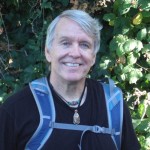
Truly paying attention breaks the spell of “self” and helps us to stop “self-ing” and start “be-ing.” It helps us see our connections and relationships to others and to all things. We feel our true wholeness.
Living this way, “How do I make myself better?” isn’t even the question; the very thought of “self-improvement” is actually an impediment. The real question is: Do I want to be alive? The issue is waking up, showing up, being present. There is no “should” or “must” in waking up! All beings naturally want happiness, and when we realize that we are truly happy to the degree we are truly present with our hearts and minds, then nothing can keep us from opening up.
Mindful attention is like sunlight, shedding light on what is dark and hidden and causing all the good things of our hearts to blossom and bloom into the possibilities of full being. There’s nothing we have to do to make this happen; it just happens when we show up each day, each moment, with no thought of self, but simply wanting to see what is what—as much as possible, without delusion, illusion or self-deception about anything. Yes, it’s a great work, but it’s such a freeing, happy one!
And it all starts in a moment, this moment.
Why not begin?
Thoughts: Francis & the embrace felt ’round the world

In the lore of monkish tales, most know the story of the original Francesco, who said that his conversion to a life of faith came along after he had embraced & kissed a leper.
This past week, the pope for our Roman Catholic friends echoed his thirteenth century namesake as a photo went viral ’round the world of him embracing a fellow with neurofibromatosis, a condition which has left him with tumors all over his body & face.
I love it when a good idea gets good press.
It’s tempting to look at the picture & say how cool the pope is for doing this. (And, it is cool.) It’s also tempting to leave the inspiration, the lesson & the discussion there.
But the more interesting question is: Have you kissed your leper today? What or who is in your life that you shun, because you’ve decided they’re gross? Can you close your eyes to the tumors & open your heart to the warmth of someone whose healing begins with your touch?
Now that would be cool.
Love you & the way you do,
Brother Ian
Thoughts: Glenna Hall, with a parable of disconnectedness
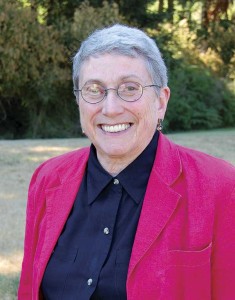
Most of my steady readers from the San Juan Islands know that the past week has seen the cutting of one of the Internet & phone cables in the islands, leaving many islanders scrambling to connect with each other.
Islander (and former judge) Glenna Hall’s remarks about this have been published in The Atlantic. See what you think.
Thoughts & writings: Liz Gilbert on Jack Gilbert: “We must risk delight.”
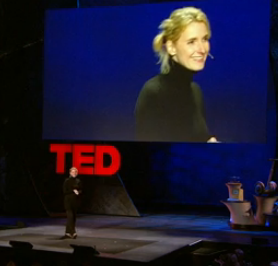
You know Liz Gilbert from her book Eat, Love, Pray.
You may know her from her wonderful TED talk about genius & how we ruin it (check it here.)
Here’s a new way to get to know her: She writes a wonderful piece in The Atlantic (published a couple of days ago, here) celebrating her memory of writer & poet Jack Gilbert (unrelated), who wrote of the way we can look for (and find!) what she calls a “stubborn gladness” in the reversals & difficulties we our everyday lives. She cites his lines:
We must risk delight. We can do without pleasure,
but not delight. Not enjoyment. We must have
the stubbornness to accept our gladness in the ruthless
furnace of this world.
And more. Here’s the essay. You’ll be glad where it leaves your heart. Thanks, Liz.
Starpeople: How many astronauts believe aliens are out there?
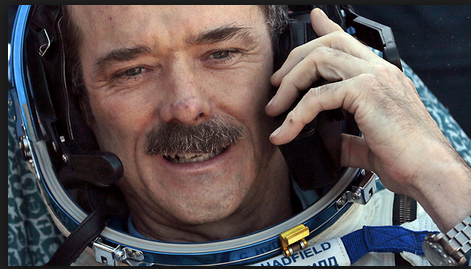
by Alexis C Madrigal (The Atlantic – click here to read the comments)
How Many Astronauts Believe Aliens Exist?
All of them, according to former Space Station commander Chris Hadfield. At least somewhere.
Astronaut Chris Hadfield is a reasonable man, a former commander of the International Space Station, and a social media superstar.
He recently went on WNYC’s Brian Lehrer show to discuss his life and career when a caller asked him about the existence of “alien life.”
“I don’t know of any astronauts who think we’re alone in the universe,” Hadfield replied.
Now, he’s obviously not talking about the UFO-Area-51 imaginary kind of aliens. He’s commenting on the possibility that somewhere out there, on some other planet, there are the bags of chemicals we call organisms reproducing themselves.
And in that belief, he’s in the mainstream of astrobiological thought, as Lane Wallace explained this week. There are just so many galaxies, which are filled with so many stars, which are circled by so many planets … How could there not be life, even if we haven’t found it?
Wordplay: Here are 25 words you need to add to your vocab, you coprolalomaniac
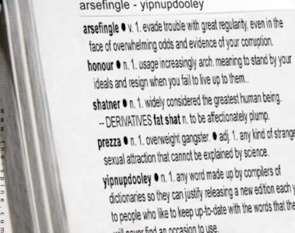
Check this list, so you’ll know what happened if someone fampled you. And did you franch it?
Or when you’re working on your bad habits, you onychotillomaniac.
Or whether to get mad if someone calls you a sneckdraw or a wallydrag.
Check Jamie’s list:
http://listverse.com/2007/11/25/another-25-words-you-dont-know/
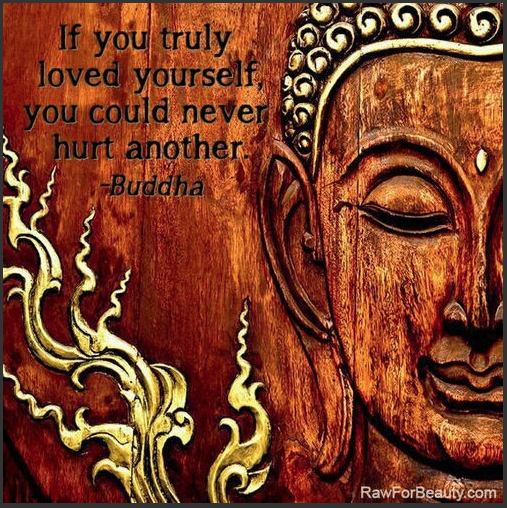

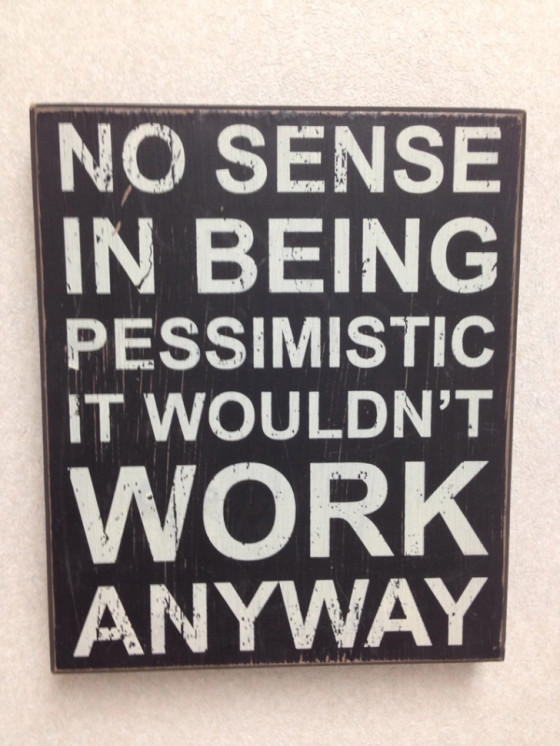

 Over the centuries, Brother Ian has been collecting stories & information & discourses for the purpose of elevating the human condition as needed, dissecting it when necessary, and building the case for hope.
Over the centuries, Brother Ian has been collecting stories & information & discourses for the purpose of elevating the human condition as needed, dissecting it when necessary, and building the case for hope.